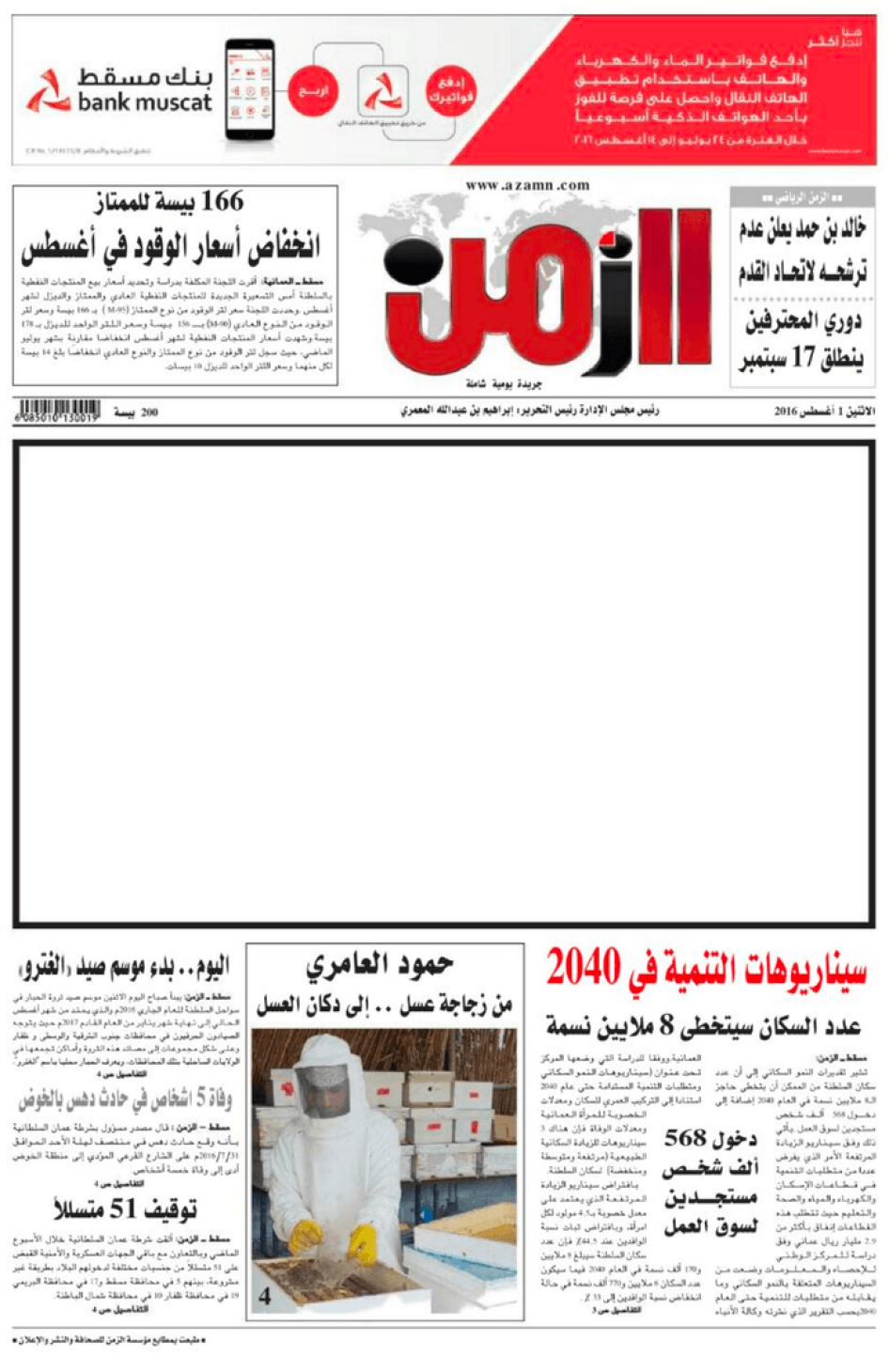(Beirut) – Omani police have arrested two journalists over a July 26, 2016 article that criticized the country’s judiciary. Ibrahim al-Ma’mari, the editor-in-chief of the newspaper Azamn, was arrested on July 28, and Zaher al-Abri, who oversees the newspaper’s local coverage, was arrested on August 3.
The Azamn article, “Higher Authorities Tie the Hands of Justice,” claimed that the chairman of the Omani Supreme Court had been involved in unlawfully influencing and overruling an appeal court’s verdict in a high-profile inheritance case. The article accused the Supreme Court chair of undermining the judiciary’s independence by carrying out instructions from “higher authorities.”
“Journalists who allege officials’ abuse of power shouldn’t face criminal charges and retaliation,” said Joe Stork, deputy Middle East director. “If the authorities think such allegations are wrong, they should debate them publicly, not lock up the messengers.”
Al-Ma’mari is believed to be held incommunicado at the Special Branch of the Royal Oman Police, a source familiar with the case told Human Rights Watch. There is currently no information available about Al-Abri’s place of detention.
Omani authorities should immediately release al-Ma’mari and al-Abri unless they promptly bring recognizable criminal charges against them and guarantee them a fair trial, Human Rights Watch said.
In an interview published on July 30, in the local news outlet Atheer, a representative of the Public Prosecution Department said al-Ma’mari is accused of violating articles 25 and 29 of the Publications and Publishing Law, which prohibit “publishing anything that explicitly or implicitly defames the person of his Majesty the Sultan or members of the Royal Family or... disrupts the public order,” and “publishing details of investigations or court proceedings related to personal status or other personal matters whose publishing is banned by standing court instructions.” The prosecution spokesman also said that al-Ma’mari is accused of violating article 135 of the penal code, which proscribes “undermining the prestige of the state,” and article 19 of the cybercrime law, which prohibits publishing materials that “undermine religious values or the public order.” The representative claimed that al-Ma’mari had declined his right to be represented by a lawyer.
Some of these vaguely defined charges appear to violate international standards of freedom of expression, including the right to criticize government authorities, as well as raise serious due process concerns surrounding the arrests, Human Rights Watch said. Authorities have also denied al-Ma’mari due process, as “no one has been able to speak to him since Thursday [July 28], no one knows where he is being held, and he hasn’t been able to see a lawyer,” an individual with details of the case told Human Rights Watch on August 1.
The source also claimed that the Information Ministry had issued orders prohibiting Azamn from publishing an article defending al-Ma’mari and reporting on his arrest. The arrested journalist Al-Abri also stated on July 31, on Twitter, that the information minister himself threatened Azamn newspaper if they reported on this topic. Following al-Ma’mari’s arrest, Azamn published a blank front page to protest being silenced.
Human Rights Watch has documented a pattern of repression of freedom of speech in Oman, as well as previous attempts to intimidate and persecute Azamn employees, including al-Ma’mari. In September 2011, an Omani court sentenced al-Ma’mari and fellow journalist Yousef al-Haj to five months in prison for insulting the justice minister in an another article that alleged corruption in the judiciary. That ruling violated international standards for freedom of speech. The court subsequently suspended the sentences.









